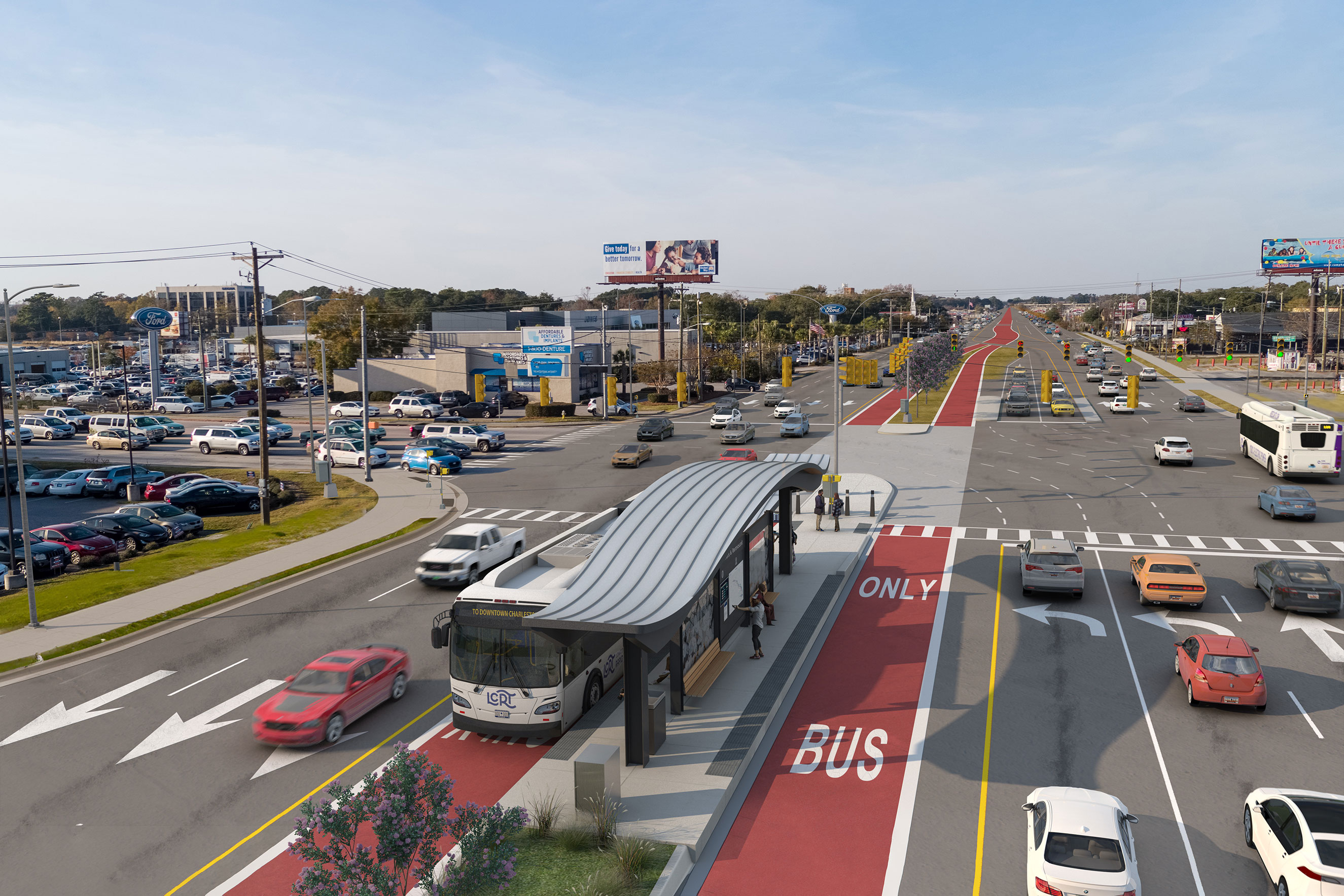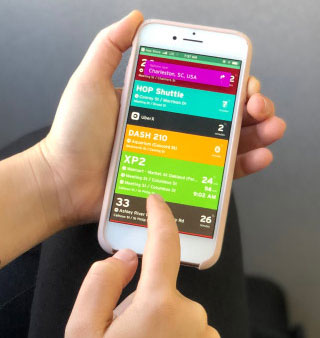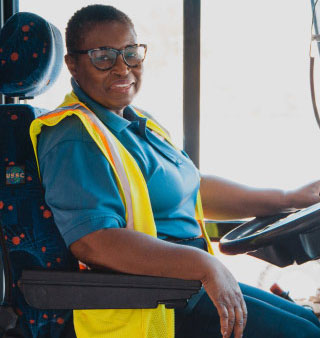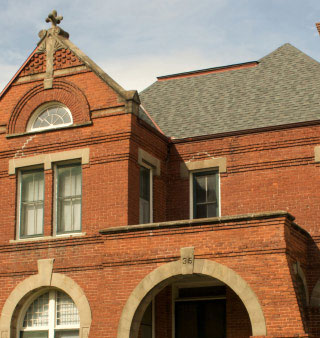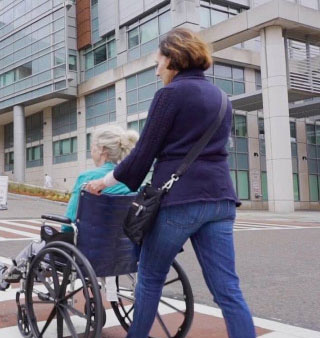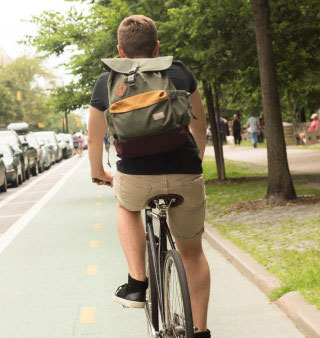More than just a transit system
LCRT Overview
Lowcountry Rapid Transit (LCRT) is being designed as a 21.3-mile modern bus rapid transit system that will connect communities in our region like never before. Operating mostly in dedicated lanes, from Ladson, serving North Charleston along Rivers Avenue and connecting to the WestEdge development in Downtown Charleston, LCRT will offer a safe, reliable, low-cost and new mobility alternative to tens-of-thousands of residents and visitors.
Project Highlights
- 21.3 miles of transit infrastructure and improvements
- Dedicated bus lanes to keep rapid transit separate from cars in key areas of the corridor
- Weekday service as frequent as every 10 minutes at 20 stations along the route
- 21 hours of weekday service
- 70-minute trip from Ladson to the Medical District/WestEdge in downtown Charleston
-
Large fleet of specialized buses designed to support more efficient and comfortable trips
- Dedicated, 60-foot articulated vehicles to serve more than 7,600 daily riders on the line
- Spacious vehicles have room for bikes and can carry 90-100 passengers
- Dual-sided and level boarding at stations for accessibility
- Bike racks at stations and on buses
-
Advanced technology to make the system more reliable and comfortable, including:
- Stoplight signal priority
- Wi-Fi equipped stations
- Digital station displays with real-time information and maps
- Updated wayfinding and corridor lighting
- Off-board fare payment
- Roadway improvements and added infrastructure to bring safer, more efficient travel for all commuters
- Sidewalk and shared-use path connectivity from CSU to downtown and 34 new signalized pedestrian crosswalks to support safe bicycle and pedestrian mobility
Project Timeline
Since 2019, the LCRT project team has followed the Federal Transit Administration's (FTA) Capital Investment Grants (CIG) program that consists of set, federally mandated phases and requires a clearly defined schedule.
The project team continues to follow this process and the project is now in final design.
The Engineering phase will consist of final design over the next two years, and construction is anticipated to begin in 2027.
See the project timeline below for more details.
Project timeline is estimated under the New Starts Capital Investment Grants program guidelines and is subject to change.
-
Local Planning Completed 2016
Pre-Project Development, Operational Analysis, Alternatives Analysis, Travel Demand Forecasting
-
Project Programming Completed 2019
Preferred Alternative Identified, Agency Coordination, Scoping and NEPA, Funding and Schedule, Existing Conditions Evaluation, Conceptual Design (10%)
-
Project Development Completed 2022
Complete NEPA, Complete 30% Design, Adopt a Locally Preferred Alternative, Refine Project Schedule and Budget, Financial Plan, FTA Rating and Readiness Review
-
Engineering We Are Here!
Complete Design and Engineering, FTA Rating and Readiness Evaluation, Full Funding Grant Agreement
-
Construction Est. 2027 - 2029
Construction Procurement, Construction, Standard Operating Procedures, Systems Testing, Safety Certification, Operations Training, System Opening
Project Funding
Funding is a critical component of LCRT. In November 2016, Charleston County voters passed a half-cent sales tax to fund roadway, transit, and green space projects. Part of the transit funding identified in the referendum will be used for LCRT. This local funding is being used to compete for federal funding grants under FTA's New Starts Program.
FTA's Capital Investment Grants program is a discretionary and competitive federal grant program that funds approximately $2.3 billion in projects per year to construct new programs and expand rapid rail, commuter rail, light rail, streetcars, bus rapid transit, ferries, and more. The FTA New Starts Program is one of the discretionary programs in the CIG grant program.
The requested federal funding represents 60% of the project cost, or about $375 million. The anticipated local funding from Charleston County represents 40% of the project cost, or about $250 million.
Project Benefits
By investing in permanent infrastructure that supports reliable, frequent and accessible rapid transit, LCRT will connect our neighbors with the resources that allow our communities to thrive - employment hubs, education, affordable housing, healthcare, grocery stores, community centers and entertainment. The investment of this system will help support growth in existing communities and preserve the culture and values that already make the Lowcountry a great place to live, work and play.
Choices
Learn MoreWith buses running every 10 minutes and stopping at a variety of new stations, it will be easier to get where you want to go in North Charleston and Downtown.
Jobs
Learn MoreLCRT will bring more jobs to the area and is expected to bring more than 1.5 million square feet of new retail space, nearly 3 million square feet of new office space, and 4,000+ additional hotel rooms. New jobs to operate the BRT will also be created.
Housing
Learn MoreLCRT is likely to result in nearly 133k new homes in the corridor by 2045. BCDCOG, Charleston County, and the Cities of North Charleston and Charleston are taking steps to protect existing affordable housing and open the door for new choices.
Access
Learn MorePeople using LCRT will have access to grocery stores, jobs, education and healthcare — providing equitable access to the things that help us thrive.
Health
Learn MoreNew sidewalks and shared-use paths will offer a safe and connected ways to bike or walk in the area. Biking and walking are much healthier options than driving a car.
Read more by navigating to the Project's History and Environmental Process pages.
Stay up to date on all things LCRT.
Sign Up for Our Newsletter
Sign up for the mailing list

